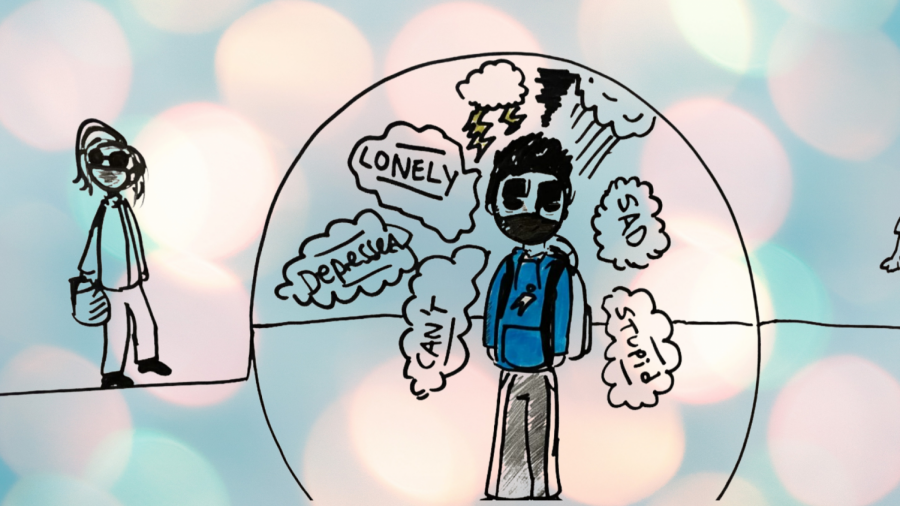Op-Ed: Mental Health During COVID-19
February 16, 2021
Every year from January to March, the days feel never-ending. The cold weather starts to intensify, and the season starts to have its impact on people.
This year, the mid-year slump is exacerbated by limited social interactions, changes to extracurricular activities, and no longer attending traditional school. As a result, there are not as many things we can do to stay busy.
For me, being a part of the virtual musical is a good way to stay connected with my friends, but it also makes me nostalgic for the past. Spending time with my friends and sharing an experience is enjoyable, but I miss sharing snacks and chatting with them during rehearsals.
After-school activities are a good way to build friendships and relax after a long school day, especially this year. School can be stressful at times, and especially now, it can be hard to find things to look forward to at the end of the day.
This time last year, I was eagerly preparing for the musical and attending weekly rehearsals. While we mainly practiced performing during rehearsal, it was also a time to hang out with my friends.
If there’s one thing I’ve learned this year, it’s that fostering connections is significantly harder when you can’t see people in-person. I am extremely grateful that I can attend school in-person most days, but I still wish that the situation was different.
Here, we don’t have a long break until mid-March. Waiting for March Break to arrive is always tedious, but spending more time on devices seems to make the days drag on more than usual this year. I try to check in with my friends and ask how they are doing, and I am saddened that I rarely get a response other than “I’m fine,” or “I’m really tired.”
It is hard to hear that people are struggling. We all have been through a lot this year, and it can be hard to see the light at the end of the tunnel.
Before the pandemic, countries spent less than 2 percent of their national health budgets on mental health, which was not enough to support their communities. Countries are now preparing to increase their spending because of an increase in depression rates.
According to the World Health Organization, more than a third of people who were surveyed reported disruptions to emergency interventions, including those for people experiencing prolonged seizures; severe substance use withdrawal syndromes; and delirium, often a sign of a serious underlying medical condition.
Many countries were able to set up mental health resources online and online therapy, but lower income countries struggled to do so. It is upsetting to know that many people are not able to get help because they have limited money or resources.
Suicide and depression rates have gone up, making therapy as important as ever. Opioid overdoses have increased over 38% since the pandemic started, which is extremely concerning. Drug usage is not the best way of coping, and it ultimately makes the situation worse than before.
Many people I know have expressed that they are sick of living in a pandemic, and I don’t blame them. It’s hard to stay motivated or take time to relax when so much is going on in the world.
Regardless of your circumstances, it is okay to feel overwhelmed and tired. This is a trying time, and mental health should be a top priority.
Talking to a trusted adult, speaking to a therapist, and meditation are valuable resources for dealing with anxiety and depression. At School, individuals such as Emily Luckett and Nurse Beth Escobar are great resources for students, and apps such as Ten Percent Happier and Headspace have guided meditations to help reduce anxiety and depression.
Some fun things that also help me relax are coloring, painting by numbers, reading, and playing with my pets.
For anyone who is struggling, I urge you to take advantage of the resources available to you. You are not alone in this time and asking for help is the first step to reducing stress and anxiety.























































